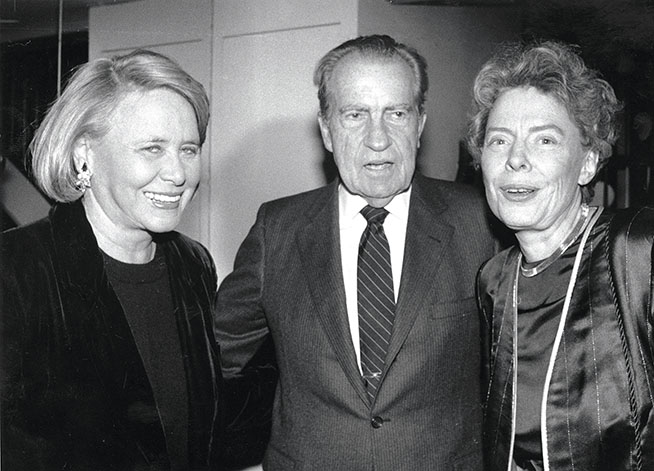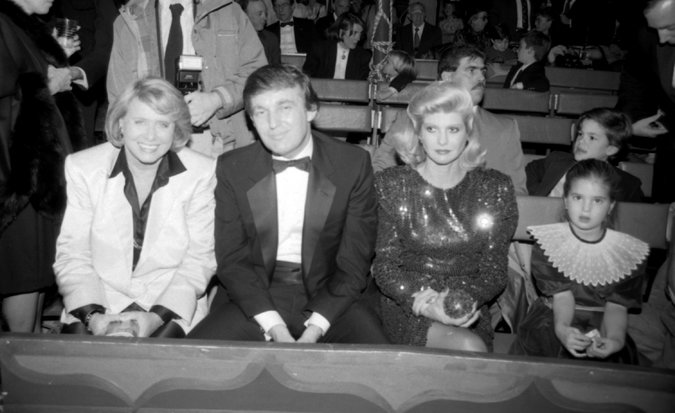Liz Smith was at the center of the culture, when the culture still had a center. Then the long tail of the Internet snapped her from the spotlight, as almost everyone became a celebrity and countless outlets allowed gossip to achieve ubiquity. The louche location of a newspaper no longer needed a name reporter anymore than most blockbusters required a particular star. The pictures didn’t get smaller, but the people in them did. Like Walter Winchell, she outlived her fame.
No one deserved a steep decline more than Winchell, who Smith grew up listening to on radio when she was a girl in Texas in the Thirties. A figure of immense power in his heyday, Winchell was vicious and vindictive, often feared and seldom loved, the inspiration for the seedy and cynical J.J. Hunsecker in Sweet Smell of Success.
By the time journalism matured in the 1960s and college-educated industry professionals began saying “ellipsis” rather than “dot dot dot,” Winchell had no power left, and people were finally able to turn away from him—and turn they did. The former media massacrist was almost literally kicked to the curb, as Larry King recalled seeing the aged reporter standing on Los Angeles street corners handing out mimeographed copies of his no-longer-syndicated column. By the time he died in 1972, he was all but already buried, and his daughter was the lone mourner in attendance.
Smith was of a later generation, and unlike Winchell or Hedda Hopper, she usually served her information with a spoon rather than a knife—the scribe loved celebrity and access and privilege so much—though she occasionally eviscerated someone who behaved badly. Frank Sinatra was her most famous foe, and you had to respect her for not pulling punches based on the size of her opponent. In the 1980s, she was a major player. A decade later, as we entered the Internet Age and Reality TV era, her empire began to crumble. Now, at 94, she wonders where it all went.
In one sense, Smith is like a lot of retirees pushed from a powerful perch. In another, because she worked in the media in a disruptive age, she has embedded in her the slings and arrows of a technological revolution that turned the page with no regard for the boldness of the bylines.
· · ·
From John Leland’s excellent NYT feature “The Rise and Fall of Liz Smith, Celebrity Accomplice“:
So when J-Lo sneezes, it is now up to someone else to make sure the public gets sick.
Facebook, maybe?
“I don’t think my name could sell anything now,” Ms. Smith said in the apartment where she moved after her stroke in January, from her longtime digs above a Tex-Mex restaurant in Murray Hill. She wore a white cable-knit sweater and bright orange lipstick.
“It used to mean — bylines used to mean something in journalism,” she said, her Texas accent still unbowed. But with the internet and social media, she said, “most people have forgotten about so-called powerful people like me; we served our time.”
Which put Ms. Smith at an existential crossroads: If a gossip columnist dishes in the forest and no one repeats it, does it make a sound? In a celebrity landscape that considers contestants on “The Bachelorette” to be celebrities, how does a star-chaser regain her star?
“I am in search of Liz Smith,” she said softly, musing at the thought. “After a lifetime of fun and excitement and money and feeling important and being in the thick of it, I am just shocked every day that I’m not the same person. I think that happens to all old people. They’re searching for a glimmer of what they call their real self. They’re boring, mostly.
“I’m always thinking falsely, expending what little energy I have, believing every day I may just rediscover that person. I try to be all of the things I was, but it inevitably fails. I don’t feel like myself at all.”•
Tags: John Leland, Liz Smith


